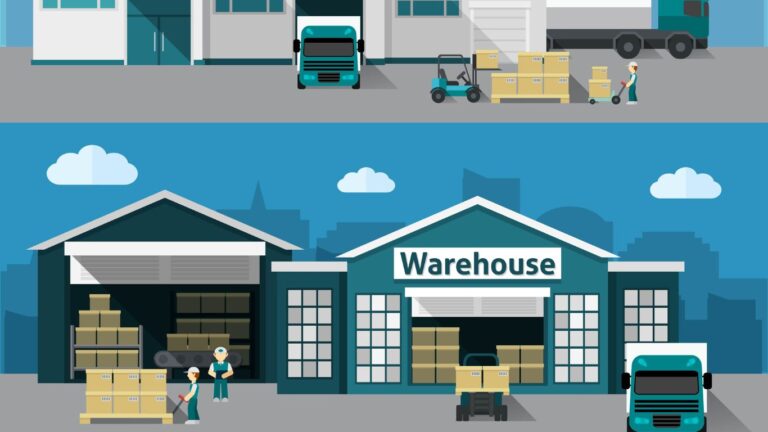1. Introduction to Logistics Companies
Logistics companies play a crucial role in today’s global economy by facilitating the efficient movement of goods and services from suppliers to customers. These companies specialize in managing complex supply chains, ensuring that products are delivered to the right place at the right time.
2. Importance of Logistics in Business
Efficient Supply Chain Management
Logistics companies help businesses optimize their supply chain processes, from sourcing raw materials to delivering finished products to consumers. By streamlining these processes, businesses can reduce costs and improve overall efficiency.
Cost Reduction
Effective logistics management can lead to significant cost savings for businesses. By minimizing transportation costs, reducing inventory levels, and optimizing distribution networks, companies can improve their bottom line and remain competitive in the market.
Customer Satisfaction
Timely delivery of products is essential for maintaining customer satisfaction and loyalty. Logistics companies ensure that goods are delivered on time and in good condition, helping businesses meet customer expectations and build positive brand reputation.
3. Key Services Offered by Logistics Companies
Transportation
Logistics companies coordinate the movement of goods using various transportation modes, including trucks, trains, ships, and airplanes. They optimize routes, consolidate shipments, and track deliveries to ensure efficient transportation.
Warehousing
Warehousing services involve storing and managing inventory in strategically located facilities. Logistics companies offer warehousing solutions to businesses, helping them maintain optimal inventory levels and fulfill customer orders quickly.
Inventory Management
Effective inventory management is essential for minimizing stock outs, reducing carrying costs, and improving order accuracy. Logistics companies employ advanced inventory management systems to track inventory levels, forecast demand, and optimize stock replenishment.
Freight Forwarding
Freight forwarding services involve arranging the transportation of goods across international borders. Logistics companies handle customs clearance, documentation, and compliance to ensure seamless international shipments.
4. How to Choose the Right Logistics Company
Industry Experience
Choose a logistics company with experience in your industry to ensure they understand your unique business requirements and challenges.
Reliability and Reputation
Look for a logistics company with a proven track record of reliability and customer satisfaction. Check online reviews and testimonials from previous clients to gauge their reputation.
Technology and Innovation
Select a logistics company that embraces technology and innovation to improve efficiency and visibility throughout the supply chain. Advanced tracking systems, real-time monitoring, and predictive analytics can enhance logistics operations.
Customization and Flexibility
Opt for a logistics company that offers customized solutions tailored to your specific needs. Flexibility is key in responding to changing market conditions and customer demands.
5. Benefits of Outsourcing Logistics
Focus on Core Competencies
Outsourcing logistics allows businesses to focus on their core competencies and strategic initiatives, rather than getting bogged down in supply chain management tasks.
Cost Savings
By outsourcing logistics, businesses can reduce operational costs associated with transportation, warehousing, and inventory management, leading to overall cost savings.
Scalability
Logistics companies offer scalable solutions that can adapt to changing business requirements and seasonal fluctuations in demand, allowing businesses to expand or contract their logistics operations as needed.
Access to Expertise
Partnering with a logistics company provides access to industry expertise and best practices, enabling businesses to benefit from the knowledge and experience of logistics professionals.
6. Trends in the Logistics Industry
Digitalization and Automation
The logistics industry is embracing digitalization and automation to improve efficiency, visibility, and decision-making across the supply chain.
Sustainability Initiatives
Logistics companies are increasingly adopting sustainable practices, such as eco-friendly transportation modes, energy-efficient warehouses, and waste reduction strategies, to minimize their environmental impact.
Last-Mile Delivery Solutions
Last-mile delivery solutions, including drones, autonomous vehicles, and crowdsourced delivery networks, are gaining traction as logistics companies strive to meet the growing demand for fast and convenient delivery options.
7. Conclusion
Partnering with the right logistics company can streamline your supply chain, reduce costs, and enhance customer satisfaction. By considering factors such as industry experience, reliability, technology, and customization, you can choose a logistics partner that meets your business needs and drives success.
FAQs about Logistics Companies
- Q: How do logistics companies calculate shipping costs?
A: Shipping costs are typically calculated based on factors such as distance, weight, dimensions, mode of transportation, and any additional services required. - Q: Can logistics companies handle international shipments?
A: Yes, many logistics companies offer international freight forwarding services to facilitate shipments across borders. - Q: What is the difference between a 3PL and a 4PL?
A: A third-party logistics (3PL) provider offers logistics services, while a fourth-party logistics (4PL) provider manages the entire supply chain on behalf of the client, including overseeing multiple 3PLs. - Q: How can logistics companies improve supply chain visibility?
A: Logistics companies can improve supply chain visibility through the use of advanced tracking and monitoring technologies, real-time data analytics, and collaboration platforms. - Q: What industries do logistics companies serve?
A: Logistics companies serve a wide range of industries, including retail, manufacturing, healthcare, automotive, e-commerce, and more.



